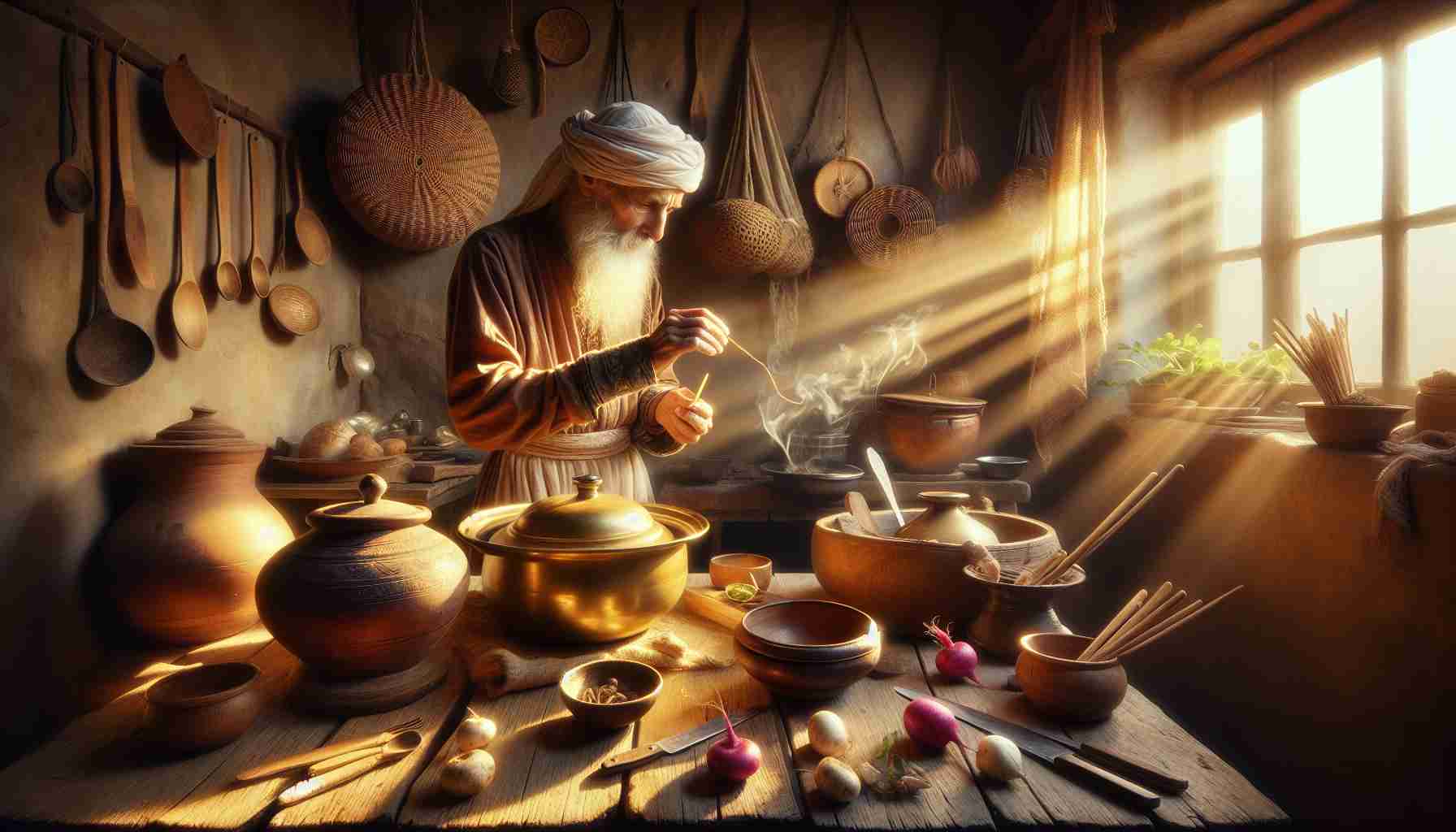

The sun was already high when I knocked on Master Fan’s wooden door. My arms were sore from carrying heavy baskets all morning, and my stomach growled. I wanted to learn to cook like he did—everyone in the village said Master Fan’s kitchen could bring peace to even the angriest heart.
He opened the door slowly and looked me over with a small smile.
“You want to learn my recipe?” he asked.
“Yes, Master Fan! I want to cook dishes that make people happy and calm.”
He nodded and waved me inside.
Master Fan didn’t speak much. He moved like water—smooth, quiet, and gentle. The kitchen wasn’t fancy. There were no golden pots or glass jars, just a few simple bowls, a knife, and wooden spoons. He didn’t teach me from books or give me a long scroll of instructions. Instead, he handed me a radish.
“Feel it,” he said.
I held the radish in both hands. It was cool and firm. Its skin was bumpy, uneven, but strong.
“Slice it,” he said.
I cut it too fast. The knife slipped. A piece fell on the floor. I groaned, frustrated.
“Don’t fight the radish,” Master Fan said softly. “Follow it.”
I looked up. “What do you mean, follow it?”
He wiped the counter. “When you push the river, it pushes back. When you flow with it, you reach the sea.”
At first, I didn’t understand. Was he talking about water or vegetables?
But over the weeks, I watched him. He never hurried. He touched each carrot and cabbage with care, listening with his hands. He never forced the food into his pattern. He allowed it to show him what it was meant to be—soft, crunchy, bitter, or sweet.
One day, I caught myself moving like him. I reached for a mushroom and paused. “What are you today?” I whispered. I cooked gently, without rushing. And the stew I made felt... calm. Like silence and laughter mixed together.
That night, villagers came to eat. One man sighed after his first spoonful and smiled like his heart had just let go of a heavy stone.
That’s when something shifted inside me.
I realized that Master Fan wasn’t just teaching cooking. He was teaching the Tao—the Way. He followed the natural flow of things, letting each moment guide him, instead of trying to control it.
It was called Wu Wei—doing without forcing.
I thought about all the times I had pushed too hard or rushed to get things “right.” But peace didn’t come from effort. It came from waiting, listening, and letting things be as they are.
I didn’t become a master cook overnight. But I stopped fighting the radish.
And each day, in each pot, I followed the flow.
Maybe that’s the secret recipe.
I still work in Master Fan’s kitchen, and the door is always open. We don’t serve only meals—we serve balance, softness, and stillness.
And quietly, I’ve learned… true freedom tastes just like that.
The sun was already high when I knocked on Master Fan’s wooden door. My arms were sore from carrying heavy baskets all morning, and my stomach growled. I wanted to learn to cook like he did—everyone in the village said Master Fan’s kitchen could bring peace to even the angriest heart.
He opened the door slowly and looked me over with a small smile.
“You want to learn my recipe?” he asked.
“Yes, Master Fan! I want to cook dishes that make people happy and calm.”
He nodded and waved me inside.
Master Fan didn’t speak much. He moved like water—smooth, quiet, and gentle. The kitchen wasn’t fancy. There were no golden pots or glass jars, just a few simple bowls, a knife, and wooden spoons. He didn’t teach me from books or give me a long scroll of instructions. Instead, he handed me a radish.
“Feel it,” he said.
I held the radish in both hands. It was cool and firm. Its skin was bumpy, uneven, but strong.
“Slice it,” he said.
I cut it too fast. The knife slipped. A piece fell on the floor. I groaned, frustrated.
“Don’t fight the radish,” Master Fan said softly. “Follow it.”
I looked up. “What do you mean, follow it?”
He wiped the counter. “When you push the river, it pushes back. When you flow with it, you reach the sea.”
At first, I didn’t understand. Was he talking about water or vegetables?
But over the weeks, I watched him. He never hurried. He touched each carrot and cabbage with care, listening with his hands. He never forced the food into his pattern. He allowed it to show him what it was meant to be—soft, crunchy, bitter, or sweet.
One day, I caught myself moving like him. I reached for a mushroom and paused. “What are you today?” I whispered. I cooked gently, without rushing. And the stew I made felt... calm. Like silence and laughter mixed together.
That night, villagers came to eat. One man sighed after his first spoonful and smiled like his heart had just let go of a heavy stone.
That’s when something shifted inside me.
I realized that Master Fan wasn’t just teaching cooking. He was teaching the Tao—the Way. He followed the natural flow of things, letting each moment guide him, instead of trying to control it.
It was called Wu Wei—doing without forcing.
I thought about all the times I had pushed too hard or rushed to get things “right.” But peace didn’t come from effort. It came from waiting, listening, and letting things be as they are.
I didn’t become a master cook overnight. But I stopped fighting the radish.
And each day, in each pot, I followed the flow.
Maybe that’s the secret recipe.
I still work in Master Fan’s kitchen, and the door is always open. We don’t serve only meals—we serve balance, softness, and stillness.
And quietly, I’ve learned… true freedom tastes just like that.